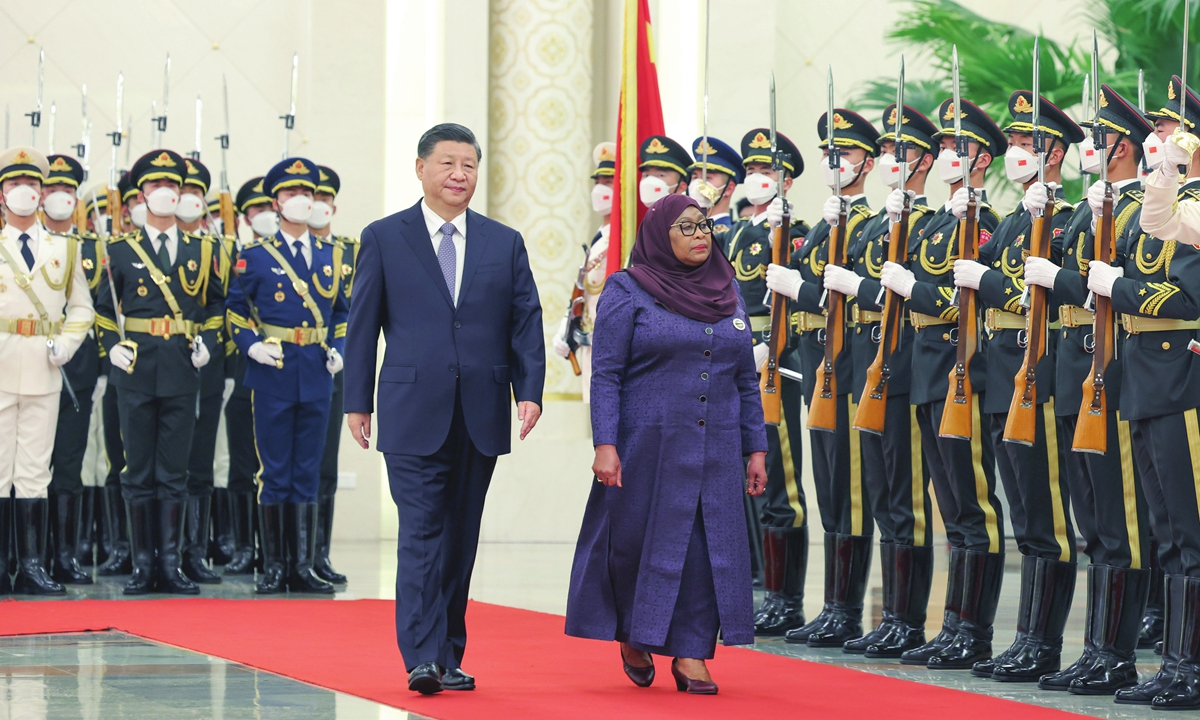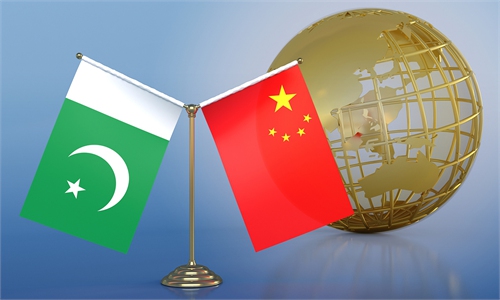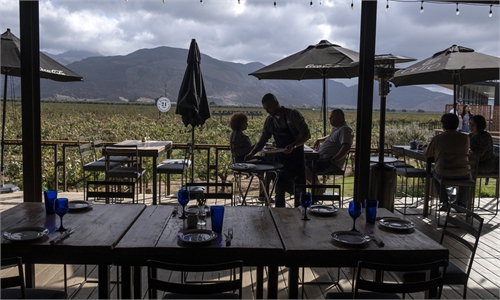China, Tanzania elevate ties, underline mutual benefit
Two countries to carry forward fine tradition, enhance cooperation

Chinese President Xi Jinping holds a welcoming ceremony for visiting Tanzanian President Samia Suluhu Hassan in the Great Hall of the People in Beijing on November 3, 2022. Photo: Xinhua
Chinese President Xi Jinping met Tanzanian President Samia Suluhu Hassan in Beijing on Thursday, and the two leaders agreed to upgrade bilateral relations to a comprehensive strategic cooperative partnership. Noting that Hassan is the first African head of state to be received by China after the 20th National Congress of the Communist Party of China, Xi said this fully shows the closeness of China-Tanzania relations and the important status of China-Africa ties in China's overall diplomacy.
During their meeting, the two leaders agreed to maintain high-level communication, and strengthen cooperation on various levels between legislative branches and political parties. The two also agreed to expand trade scale, push forward infrastructure project cooperation and join hands in other fields such as green development as well as digital economy.
Chinese experts believed the upgrading of ties will bring China and Tanzania closer in various fields when the African country is facing multiple challenges. Also, being the first head of state from an African nation to visit China after the successful conclusion of the 20th National Congress of the CPC shows Tanzania's endorsement of past cooperation with China, and the confidence and increasing willingness to cooperate with China will give this African country, as well as the whole continent, much-needed impetus for economic recovery amid COVID-19 epidemic, and help those countries successfully develop their own growth path, said experts.
The two Presidents spoke highly of the traditional friendship between China and Tanzania, and noted with satisfaction the fruitful outcomes of China-Tanzania relations and their friendly cooperation in the past 58 years since the establishment of diplomatic relations.
The two sides agreed to further leverage the political guiding role of head-of-state diplomacy, maintain the momentum of high-level interactions and dialogues; pledged to continue supporting each other on issues involving sovereignty, territorial integrity and other core interests and concerns.
Hassan's visit not only demonstrates Tanzania's recognition of cooperation with China over the past years, but also shows the African country's increasing willingness to deepen ties with China, as the economy of Tanzania, along with many African countries, has been ravaged by the COVID-19 pandemic, and its food security was shaken by the ongoing Russia-Ukraine conflict, Song Wei, professor from the institute of international relations at Beijing Foreign Studies University, told the Global Times.
Pragmatic cooperation
When meeting with Hassan, Xi said China supports Tanzania on safeguarding its sovereignty, security and development interests, and firmly supports Tanzania to explore a development path that suits itself.
China is ready to continue expanding import of specialty products from Tanzania, supporting Chinese enterprises to invest there, and providing assistance to Tanzania's economic and social development as its capacity allows, Xi said.
The two sides agreed to expand bilateral trade volume, further deepen high-quality cooperation under the framework of Belt and Road Initiative, and enhance cooperation in processing and manufacturing, green development, and digital economy, among others.
Shen Shiwei, a research fellow from Institute of African Studies, Zhejiang Normal University predicted the two countries will deepen their cooperation on infrastructure and agriculture, as China's help to Tanzania on agriculture has helped enhance the country's food security and China-assisted infrastructure projects have paved the way for Tanzania's development.
The two sides are expected to see more growth potential in sectors such as key infrastructure projects, industrialization, supply chain, import and export of agricultural products as well as agricultural processing, Shen said.
Speaking at a press conference last month, Tanzania's Ambassador to China Mbelwa Kairuki encouraged Tanzanians to prepare for the opportunities that will be brought during the visit, Tanzania Daily News reported.
According to Kairuki, trade between the two countries has been growing by 20 percent in the past three years. He said that last year, the trade volume between Dodoma and Beijing was $6.74 billion.
From the Tanzania-Zambia Railway built in the 1970s, to Xi's visit in 2013, to the cooperation under the Belt and Road Initiative, the two countries have formed a long-lasting friendship and reached comprehensive cooperation, covering various fields from infrastructure construction, agriculture to culture, according to He Wenping, director of the African Studies Section at the Institute of West Asian and African Studies under the Chinese Academy of Social Sciences.
As Tanzania has been heavily impacted by the COVID-19 epidemic, and its overall industrialization remaining at a relatively low level, there will be much more potential for the two countries to cooperate, and inject much-needed impetus for Tanzania's economic recovery, said experts.
Real friend
Xi also told Hassan that China has already explored a development path that suits China's situation. The CPC and Chama Cha Mapinduzi, the ruling party of Tanzania all shoulder the historical mission of national rejuvenation, and the CPC will continue to strengthen communication with Chama Cha Mapinduzi, and support the teaching and operation of Mwalimu Julius Nyerere Leadership School in Tanzania.
In February this year, Xi sent a congratulatory letter on the inauguration ceremony of Mwalimu Julius Nyerere Leadership School in Tanzania, which had been a joint effort of six liberation movement parties in southern Africa.
In May, the school held a seminar for middle-aged and young cadres of the six parties in Southern Africa. In his letter of reply to the participants of the seminar, Xi encouraged these Party members to be pioneers who drive the progress of the times and the pillars of national rejuvenation.
In a phone call with Xi in June last year, Hassan expressed willingness to learn from China's experience in poverty alleviation and governance and strengthen exchanges and cooperation in trade, infrastructure, humanities, and other fields with China.
Ever since the 18th CPC National Congress in 2012, there have been talks over enhancing exchanges of governance experience with African countries, which aim to help those countries improve their governance and find a development model that suits them, said Song, stressing that such exchange is fundamentally different from those of Western countries, which export their political system.
Such exchanges have always been hyped by Western media as China's attempt to beef up its influence in Africa and to export its development model to this region.
Experts said that Western countries, and the US in particular, are jealous of the prosperous cooperation between China and African countries, and are therefore making bogus accusations about the cooperation and making empty promises at the same time.
The West's "bluster over promise" schemes range from former US president Barack Obama's Power Africa to B3W, in which the US pledged to provide $40 trillion to developing nations including Africa by 2035.
Power Africa had promised to invest and produce 20,000 megawatts of electricity in Africa by 2020. According to statistics, by the end of that year, actual power generation was only 4,194 megawatts, less than a quarter of the promised amount. It's been nearly a year since B3W was announced, but the US government has invested a mere $6 million in global infrastructure, much less than its commitment of $40 trillion, the Xinhua News Agency reported.
China-Africa trade reached an all-time high in 2021, and the African economy's improvement in 2021 was mainly due to the improvement of the external environment, especially the active support of China and other markets that enhanced Africa's export capacity, Xinhua reported.
A survey by the UK-based YouGov-Cambridge Globalism Project, carried out this summer covering 1,000 people in 25 African countries, including Kenya, Nigeria and South Africa, shows that across the continent, China was widely seen as a force for good. In South Africa, 61 percent of respondents saw China's influence in the world as positive, in Kenya the support for China was higher at 82 percent, and Nigeria was highest of the three, standing at 83 percent.
"African countries need real cooperation instead of becoming 'chess pieces' in major power competition…as long as it is for the good of Africa, China is willing to cooperate with other countries to push forward rapid development for the continent," said Song.



